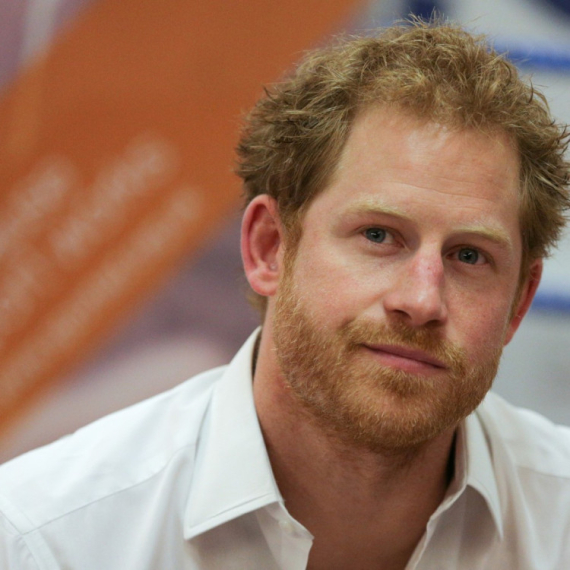U.S. accused of killing peace prospects
Palestinians on Sunday said Washington's backing of Israeli refusal to halt Jewish settlement expansion had killed any hope of reviving peace negotiations soon.
Sunday, 01.11.2009.
13:51

Palestinians on Sunday said Washington's backing of Israeli refusal to halt Jewish settlement expansion had killed any hope of reviving peace negotiations soon. Israeli Prime Minister Benjamin Netanyahu, buoyed by new-found support from the Obama administration, urged the Palestinians to "get a grip" and drop their settlement freeze precondition for restarting talks suspended since December. U.S. accused of killing peace prospects On a one-day Middle East visit on Saturday, Secretary of State Hillary Clinton endorsed Israel's view that settlement expansion in the occupied West Bank should not be a bar to resuming negotiations -- contradicting the Palestinian position. Netanyahu has proposed limiting building for now to some 3,000 settler homes already approved by Israel in the West Bank. He does not regard building in occupied East Jerusalem, annexed in defiance of international opposition, as settlement. President Barack Obama himself, after persuading Palestinian President Mahmoud Abbas in September to meet Netanyahu in New York, called only for "restraint" in settlement, not the "freeze" he had previously proposed. Stung by Obama's about-face and Clinton's remarks, the Palestinians voiced their frustration. "The negotiations are in a state of paralysis, and the result of Israel's intransigence and America's back-peddling is that there is no hope of negotiations on the horizon," said Abbas spokesman Nabil Abu Rdainah. He said the Palestinians were calling for the Arab League to formulate a "unified Palestinian-Arab position" on the stalled peace process. Netanyahu told his cabinet that U.S. envoy George Mitchell would continue efforts on Sunday to revive negotiations. "We hope very much that the Palestinians will get a grip and engage in the diplomatic process," Netanyahu said. "It is in the interests of Israel and the Palestinians." Abbas faces intense domestic pressure from Hamas Islamists who control the Gaza Strip, and any compromise on settlements could hurt him politically in a run-up to Palestinian elections he has scheduled for January 24. Hamas has rejected holding a vote. Some 500,000 Israelis live in the West Bank and East Jerusalem alongside 2.8 million Palestinians. Israel captured the territories in a 1967 war with its Arab neighbors. Palestinians say settlements could deny them a viable state. A U.S.-backed peace "road map" of 2003 says Israel should halt settlement activity. Abbas, however, took part in a negotiating process launched at Annapolis in late 2007 by Obama's predecessor George W. Bush. Abbas suspended negotiations over Israel's offensive last December in the Gaza Strip. Having invested considerable capital in seeking a solution for Palestinians and Israelis as part of a broader thrust to help stabilize the oil-rich Middle East, Obama faces an early setback in his presidency if the two sides refuse even to talk.
U.S. accused of killing peace prospects
On a one-day Middle East visit on Saturday, Secretary of State Hillary Clinton endorsed Israel's view that settlement expansion in the occupied West Bank should not be a bar to resuming negotiations -- contradicting the Palestinian position.Netanyahu has proposed limiting building for now to some 3,000 settler homes already approved by Israel in the West Bank. He does not regard building in occupied East Jerusalem, annexed in defiance of international opposition, as settlement.
President Barack Obama himself, after persuading Palestinian President Mahmoud Abbas in September to meet Netanyahu in New York, called only for "restraint" in settlement, not the "freeze" he had previously proposed.
Stung by Obama's about-face and Clinton's remarks, the Palestinians voiced their frustration.
"The negotiations are in a state of paralysis, and the result of Israel's intransigence and America's back-peddling is that there is no hope of negotiations on the horizon," said Abbas spokesman Nabil Abu Rdainah.
He said the Palestinians were calling for the Arab League to formulate a "unified Palestinian-Arab position" on the stalled peace process.
Netanyahu told his cabinet that U.S. envoy George Mitchell would continue efforts on Sunday to revive negotiations.
"We hope very much that the Palestinians will get a grip and engage in the diplomatic process," Netanyahu said. "It is in the interests of Israel and the Palestinians."
Abbas faces intense domestic pressure from Hamas Islamists who control the Gaza Strip, and any compromise on settlements could hurt him politically in a run-up to Palestinian elections he has scheduled for January 24. Hamas has rejected holding a vote.
Some 500,000 Israelis live in the West Bank and East Jerusalem alongside 2.8 million Palestinians. Israel captured the territories in a 1967 war with its Arab neighbors. Palestinians say settlements could deny them a viable state.
A U.S.-backed peace "road map" of 2003 says Israel should halt settlement activity. Abbas, however, took part in a negotiating process launched at Annapolis in late 2007 by Obama's predecessor George W. Bush. Abbas suspended negotiations over Israel's offensive last December in the Gaza Strip.
Having invested considerable capital in seeking a solution for Palestinians and Israelis as part of a broader thrust to help stabilize the oil-rich Middle East, Obama faces an early setback in his presidency if the two sides refuse even to talk.




































Komentari 2
Pogledaj komentare